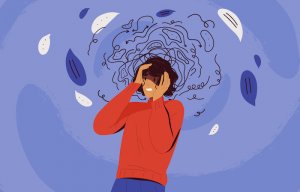What Is HALT? The Dangers of Being Hungry, Angry, Lonely or Tired
If you’ve attended rehab programs or gone to 12-step meetings, you may have heard people use the term HALT. An acronym for Hungry, Angry, Lonely, Tired, it’s a tool used to remind people of four of the most common stressors in recovery. While they may seem obvious, these basic needs can be easy to overlook and lead to relapse if they’re not met. Practicing HALT works as an effective warning system, reminding you to pause (halt!) and identify common triggers before picking up a drink or a drug.
HALT for Your Health

Most people with substance use disorders spend years using alcohol and/or drugs to alter their mood and avoid uncomfortable feelings. They may also neglect basic self-care practices such as eating regular meals and getting a good night’s sleep. When this happens, it can become difficult to identify common stressors like hunger and fatigue, especially in the early stages of sobriety.
Reminding yourself to HALT when you feel triggered gives you the opportunity to recognize and potentially alleviate underlying discomfort without having to turn to a substance for relief. When you’re hungry, for example, the drop in blood sugar can cause feelings of anger and irritability that can be easily mistaken for a craving.
Taking a minute to HALT allows you to think before you act. Did you skip breakfast because you overslept? Did you miss lunch because of a busy workday? If the answer is yes, fix yourself a snack and see if it makes a difference. It’s likely you’ll start to feel better — and your desire for a drink or drug will wane — once your body is nourished.
Using HALT to Avoid Common Stressors
HALT can also be used to set yourself up for long-term relapse prevention. It’s relatively easy to avoid being hungry (and minimize your risk of experiencing cravings) if you make an effort to eat healthy foods. It’s also best to avoid skipping meals, and to carry around healthy snacks such as nuts or dried fruit.
It’s also fairly simple to avoid feeling tired by getting enough sleep. This is one of the reasons why it’s so important to practice proper sleep hygiene when you’re getting sober. If you’re struggling with sleep disturbances or a disorder such as insomnia — which is common in early recovery — don’t be afraid to reach out for help. A doctor or therapist can recommend non-addictive medications and/or techniques to help get your sleeping patterns back on track.
One of the best ways to keep yourself connected to others in recovery is to attend 12-step meetings. In addition to providing support and a place to meet people who are going through similar struggles, being part of a fellowship such as AA and NA can give you a sense of belonging and remind you that you’re never alone in your addiction. As a result, 12-step meetings are effective tools to fight loneliness in recovery.
If you’re struggling with cravings or feeling lonely in your recovery, we’re just a phone call or click away. Reach out today for help!
